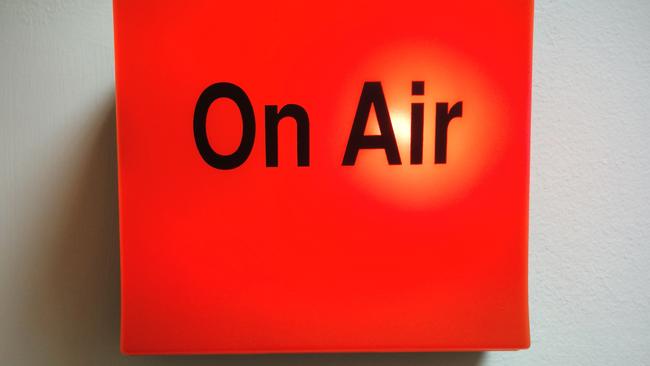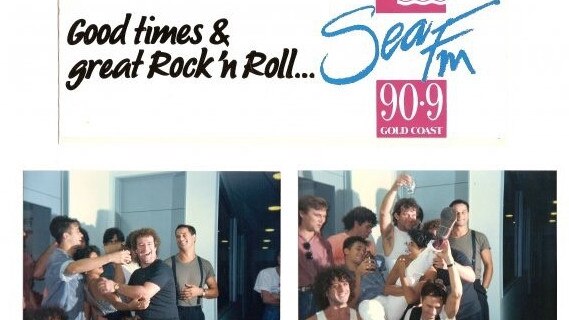90.9 Sea FM: Inside story of Gold Coast radio station’s founding and battle for supremacy
A “David and Goliath” ratings war between two of the city’s biggest stations broke out which led to the end of one of the Gold Coast’s best-loved names. INSIDE STORY
Entertainment
Don't miss out on the headlines from Entertainment. Followed categories will be added to My News.
A “David and Goliath” ratings war between two of the city’s biggest stations broke out this month 35 years ago when the reigning champion came under threat from a plucky underdog.
It was early 1989 and the Gold Coast was getting ready to say goodbye to the 1980s and hello to a new decade.
It was the year the city said goodbye to AM radio as long-serving station 4GG moved to FM where it was joined by new upstart station 90.9 Sea FM.
The older station, once the Coast’s sole commercial radio station, had to change its name to 4GGG as part of the move.

4GG had ruled the airwaves for more than 20 years and became a landmark of the Gold Coast in the 1970s and 1980s.
For many it was all they thought of when Gold Coast radio came to mind and continues to be remembered as such today.

Sea FM was an $8 million venture owned by Gold Coast FM Radio Pty Ltd, a consortium of Brisbane and Gold Coast companies and shareholders which beat 10 other groups for the FM licence the previous year.
The company’s directors included Grundy Entertainment president Ian Holm, local builder Ron McMaster, radio identity Leslie Heil, major shareholder and managing director Stan Willmott and chairman Geoff Burchill, a local developer.

Mr Burchill told the Bulletin in the days before its launched the new station, whose team included Karen List and Suki Mead, would provide a community service.
“Above all else our philosophy is to be an integral part of the Gold Coast community and to be a good neighbour, vigorous supporter and a reliable friend to the Gold Coast community,” he said.
But some early shots were fired in the radio war, with Sea FM declaring the rebranded 4GGG was a 1967 model with a new paint job, referring to the year it first broadcast.
But 4GGG boss Barry Ferber hit back and insisted his station was ready for a fight.
“I think they’re very naive,” he said.
“4GGG will be nothing like 4GG, other than we will retain all the gold things 4GGG has been renowned for and been successful for – namely community service, news and local involvement.

“As far as the music is concerned we will be playing three times the music and we will reduce our commercial content.
“We have a proven record, they have no record at all and while they’re promising, we will be delivering.”
Sea FM first hit the airwaves at 3.30pm on March 20, 1989 followed by 4GGG 92.5 at 4pm.
The new station launched itself with a bang as Jimmy Barnes and keyboard player Peter Kekel blasting out the notes of a new song.
They were joined by Jon Stevens, Stuart Fraser and Steve Balbi from Noiseworks, Mark Seymour from Hunters and Collectors and Johnny Diesel and Sherine from Big Pig at a live concert from Sea FM’s Southport headquarters in the Seabank building.

4GGG meanwhile dished up a free breakfast at its Bundall headquarters.
When the first ratings results came out in mid-1989 it was clear there was a new king of Gold Coast radio – Sea FM.
The ratings battle claimed a major scalp, with Ferber sacked as station manager later that year by its Sydney-based owner Hoyts.
Hoyts sold the station the following year and it finally became 92.5 Gold FM in 1992.
Both stations remain on the air today but have gone through several rebrands in recent years.
Sea FM late became known as Hit90.9 in 2019 but reverted back to the SEA fm name in 2021.
Gold FM is today known as 92.5 Triple M Gold





